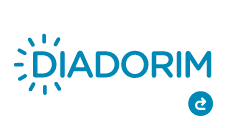La conformación de nuevas teorías sobre el arte latinoamericano en el proceso de crisis epistemológica de la modernidad
DOI:
https://doi.org/10.35699/2238-2046..15446Abstract
El Mayo francés y la entrada de los tanques soviéticos a Praga señalaron simbólicamente el año de 1968 como el momento de apogeo de una crisis - política, socioeconómica, cultural - que relativizó los principales proyectos occidentales del siglo XX. En el campo del arte latinoamericano en se trató de un momento de transición, en el que se reformularon algunas respuestas en nuevos términos, y se anticiparon desarrollos teóricos posteriores. Los críticos, transformados en teóricos, ubicaron sus reflexiones dentro de una temporalidad predictiva - la futurología de Romero Brest - y prescriptiva - el pensamiento visual independiente de Acha, o la resistencia de Marta Traba -, buscando figurarse hacia adonde iban las prácticas artísticas de la región.
Downloads
Downloads
Published
Issue
Section
License
Copyright (c) 2012 Fabiana Serviddio

This work is licensed under a Creative Commons Attribution-NonCommercial 4.0 International License.
Authors who publish in this journal agree to the following terms:
- Authors retain copyright and grant the journal the right of first publication, with the work simultaneously licensed under the a Creative Commons Attribution-NonCommercial 4.0 International License that permits sharing of the work with acknowledgement of authorship and initial publication in this journal;
- Authors are permitted to enter into additional contracts separately, for non-exclusive distribution of the version of the work published in this journal (e.g., the Creative Commons Attribution License).
- Authors are permitted and encouraged to publish and distribute their work online (e.g., in institutional repositories or on their home page) at any point before or during the editorial process, as this may generate productive changes as well as increase the impact and citation of the published work.
- It is the responsibility of the authors to obtain written permission to use in their articles materials protected by copyright law. Revista PÓS is not responsible for copyright breaches made by its contributors.












